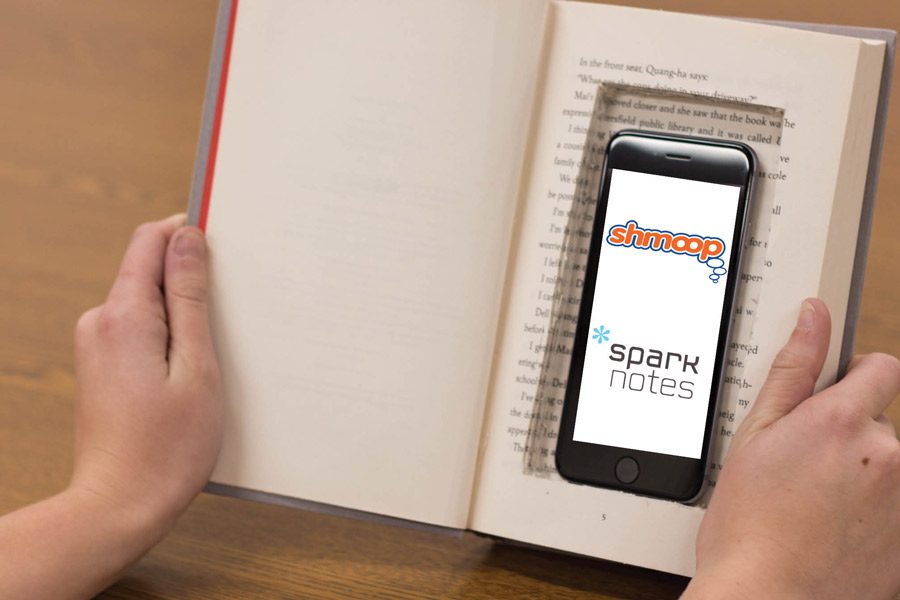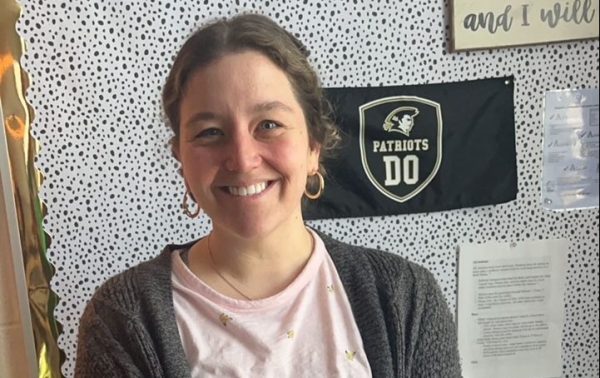Long story short
Students cut corners to avoid reading their books for English class by finding replacements online
Megan sits at her desk, scrolling through her Instagram feed as her copy of “The Story of Edgar Sawtelle” sits open on her desk, untouched. She has a test on the book the next day, but she knows that she can sparknote it and still pass, so she ignores her book. Megan is not her real name, but she is a real JC student who uses online summaries as a replacement for reading her assigned English books.
Many students share Megan’s mindset and read online summaries of books as a replacement for reading the assigned books themselves. “I feel like half of my students use summaries instead of reading, if not more,” English teacher Nick Attanasio said.
Teachers are aware that students use online summaries instead of reading the whole book. “I overhear students talking during advisory and during Yearbook, and a lot of them say they read the first part of the book and look for summaries online for the rest,” English Department Chair Christine Zurkowski said.
Some students cite a lack of interest as their cause for not reading. “I don’t like the books assigned, so online summaries are a way of doing the work for the class but getting out of reading,” sophomore Kevin Amos said.
“Students don’t read their assigned books because people get bored with them. School books aren’t usually interesting,” senior Caroline Barwick said.
However, teachers try to find books that will interest their students, according to Attanasio. “I’m not choosing books I think people will hate. English teachers discuss ‘will students like this book?’ and ‘does it have literary merit?’” he said.
Other students find that reading the whole book requires time that they don’t have. “I’ll use summaries because I don’t have enough time to read the book,” senior Lauren Christensen said. “I have a lot of other schoolwork, so I don’t have a lot of time.”
Teachers understand that students have time commitments, but attribute their lack of time to procrastination. “They don’t read because they don’t have time, which usually means they’ve put it off until the last minute,” Attanasio said.
Overall, students find the ease of online summaries more attractive than reading the book. “It’s easier to just look at a summary than read a book,” freshman Vincent Giviletti said.
While students gave varied reasons as to why they use summaries over books, some students, like Christensen, believe that reading is the best option. “Reading is definitely better than using summaries because you can include more info, write better essays, and have a better opinion,” she said.
While online summaries may make you successful in the short term, they can negatively impact you in the long run, according to Zurkowski. “If [students in college] need to have a thorough and deep discussion [having only read summaries], that might be hard for them,” she said.
Attanasio believes that reading the whole text of the assigned books has multiple benefits in and outside of college. “I think looking at summaries can help them in college, but students that have disciplined themselves to read in high school will be better at getting reading done in college,” he said. “It improves your vocabulary [and] your grammar. Reading is the way you absorb language. The more things you read, the greater your facility with language.”
Students like Barwick also agree that reading now can help prepare you for college. “If you don’t read now, you’ll never do it in college,” Barwick said.
Attanasio argues that that reading can help students even beyond the classroom. “I think there’s value to reading and even struggling with literature. You get something from that. A person who reads a summary versus a person who reads every word in the book may come away with identical grades, but the person who reads the book will know it in a different way, in a deeper way. If we think that literature has something to say about human nature or life or history, then they’ll have something better to say,” Attanasio said.
Grace Mottley is the Assignment Chief for The Patriot and jcpatriot.com.






